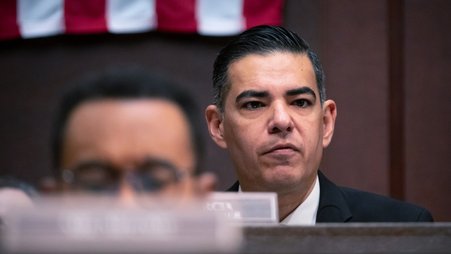
Las Vegas Review-Journal journalist Jeff German was murdered last year, allegedly in retaliation for his investigative reporting.
News sources sometimes outlive the journalists they work with. That seems obvious enough. So why should a journalist’s death have any impact on the confidentiality of source identities and newsgathering materials?
It shouldn’t. But this week a Nevada judge questioned whether the Las Vegas Review-Journal could claim the reporter’s privilege after its investigative reporter, Jeff German, was murdered. Detectives in the homicide case want to search his devices. The suspect, a former county official, allegedly targeted German due to his reporting.
German was 69 years old when he died. Of course his sources could not have anticipated he’d be murdered for his work, but no one in their right mind would pass along a confidential news tip to a journalist pushing 70 if they believed confidentiality lasted only as long as the journalist.
Prosecutors have argued that Sixth Amendment fair trial rights trump First Amendment interests. The Supreme Court has made its disagreement with that premise clear but, in this case, it’s a red herring. The Review-Journal’s lawyer said the paper might ultimately agree to a targeted search — it just wants a seat at the table to ensure that sources aren’t outed. The paper requested that a “special master,” as opposed to homicide detectives, conduct the search to minimize those concerns.
The judge indicated she believed detectives should be allowed to conduct the search. She opined that a “protective order” restricting disclosure should suffice to protect German's sources. That would’ve been news to the sources, who may have included the detectives’ coworkers for all we know. They entrusted a reputable journalist and newspaper — not government officials — to safeguard their identities.
And trusting detectives to handle source communications sensitively seems particularly ill-advised when they can’t even get their story straight over whether they’ve already illegally searched German’s phone.
The predicament relates back to a fundamental misunderstanding of the reporter’s privilege. The primary purpose is to empower sources to communicate with journalists without fear that the government or the public will learn who they are or what they said in court proceedings.
For the privilege to be effective, anyone with an interest in preserving source confidentiality should be able to invoke its protections. That may include the journalist, the media outlet, communications providers or the source themselves (through John Doe proceedings).
A reporter’s privilege that only extends to reporters functions merely as a means of getting journalists out of inconvenient court dates and depositions. That’s important in its own right — journalists don't work for prosecutors and have better things to do with their time — but it’s not nearly as crucial as protecting confidential sources from losing their jobs or freedom.
The same problem has surfaced in Buffalo, New York, although in a far less morbid context. A federal judge allowed Starbucks broad discovery into labor organizers’ communications with the media to try to prove that organizers used the press to generate controversy regarding their working conditions (it’s unclear what would be wrong with that). He rejected the organizers’ opposition to the subpoena in September and declined to reconsider his ruling earlier this week.
The reporter’s privilege was hardly discussed (if at all) because the subpoenas were directed at the organizers and not the media. But the outcome is the same — potential retribution against Starbucks employees who sought to inform journalists of wrongdoing.
Media companies and their lawyers need to forcefully advocate for an expansive reporter’s privilege and state legislatures need to make sure privilege laws anticipate and prohibit workarounds. And Congress needs to pass the PRESS Act, which innovates by protecting against subpoenas not only to journalists but their email and phone providers.
Note: A prior version of this article stated that the Las Vegas judge ruled that a protective order would suffice to protect German's sources. Although the judge indicated a belief that a protective order would suffice, she did not actually rule on the issue, which is pending before the Nevada Supreme Court.




